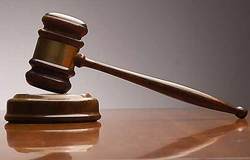The Health, Employment, Labor, and Pensions Subcommittee of the House Education and Labor Committee held a hearing on Wednesday, April 22 on legislation that will provide American workers with clear and complete information about Wall Street fees taken from their 401(k)-style accounts.
The 401(k) Fair Disclosure for Retirement Security Act of 2009 will help workers shop around for the best retirement options by requiring simple fee disclosure on the investment options contained in their employer’s 401(k) plan. Current law does not require all fees workers pay to be disclosed; and even for information that is available, it can be difficult for workers to find and evaluate.
The bill was introduced on Tuesday, April 21, 2009 by Rep. George Miller (D-CA), chairman of the full committee, and Rep. Rob Andrews (D-NJ), chairman of the subcommittee.
Hidden 401(k) fees were the subject of Sunday’s 60 Minutes and featured an interview with Rep. Miller. To watch the segment, click here.
The 401(k) Fair Disclosure for Retirement Security Act of 2009 will help workers shop around for the best retirement options by requiring simple fee disclosure on the investment options contained in their employer’s 401(k) plan. Current law does not require all fees workers pay to be disclosed; and even for information that is available, it can be difficult for workers to find and evaluate.
The bill was introduced on Tuesday, April 21, 2009 by Rep. George Miller (D-CA), chairman of the full committee, and Rep. Rob Andrews (D-NJ), chairman of the subcommittee.
Hidden 401(k) fees were the subject of Sunday’s 60 Minutes and featured an interview with Rep. Miller. To watch the segment, click here.




